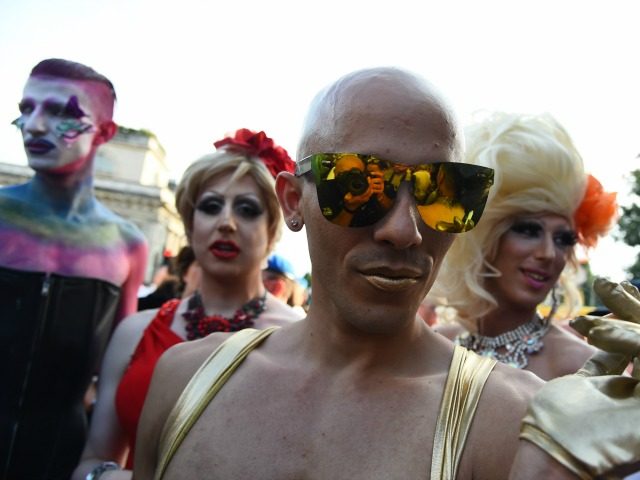In a powerful new statement, 20 influential American religious leaders have come together to reaffirm the basic distinction between male and female as rooted in biological sexual differences.
“We come together to join our voices,” the statement reads, in asserting that “human beings are male or female and that the socio-cultural reality of gender cannot be separated from one’s sex as male or female.”
The signers of the document, which include high-ranking members of the Catholic, Lutheran, Muslim, Orthodox Christian, Baptist and Anglican religions, assert that gender ideology “harms individuals and societies by sowing confusion and self-doubt,” while also declaring that the state has a compelling interest to defend “policies that uphold the scientific fact of human biology and supporting the social institutions and norms that surround it.”
The faith leaders state that God created each person male or female and that all human beings possess an inherent dignity. Therefore, they assert, “sexual difference is not an accident or a flaw—it is a gift from God that helps draw us closer to each other and to God. What God has created is good.”
The signers of the document do not hesitate to call out modern attempts to redefine sexuality based on the ideology of gender fluidity, and especially the heavy-handedness used to coerce others to embrace this theory.
“The movement today to enforce the false idea—that a man can be or become a woman or vice versa—is deeply troubling,” the letter states. “It compels people to either go against reason—that is, to agree with something that is not true—or face ridicule, marginalization, and other forms of retaliation.”
In the declaration, the faith leaders also adopt a pastoral tone, recognizing the struggles some face with gender dysphoria—the difficulty in identifying with one’s biological sex—but insist that the solution does not lie in simply redefining one’s sexuality.
“A person’s discomfort with his or her sex, or the desire to be identified as the other sex, is a complicated reality that needs to be addressed with sensitivity and truth,” the leaders note. “Each person deserves to be heard and treated with respect; it is our responsibility to respond to their concerns with compassion, mercy and honesty.”
“As religious leaders, we express our commitment to urge the members of our communities to also respond to those wrestling with this challenge with patience and love,” they add.
In the case of children, the issue is particularly delicate given their emotional immaturity and the inability to make fully rational choices, the text notes, while urging special care in their regard.
“Children especially are harmed when they are told that they can ‘change’ their sex or, further, given hormones that will affect their development and possibly render them infertile as adults,” the statement warns.
“Parents deserve better guidance on these important decisions, and we urge our medical institutions to honor the basic medical principle of ‘first, do no harm,’” they state.
In their analysis, the religious leaders reiterate many of the points made by the American College of Pediatricians (ACP) in a landmark position paper on transgenderism published in August 2016.
In their report, the ACP denounced the “unscientific gender ideology” underlying popular approaches to transgender, which lack any basis in real medical evidence.
The physicians took issue especially with the groundless assumption that gender dysphoria (GD) is innate, saying it contradicts all relevant data and is based on ideology rather than science.
Studies have shown, the authors argued, that the “perspective of an ‘innate gender identity’ arising from prenatally ‘feminized’ or ‘masculinized’ brains trapped in the wrong body is in fact an ideological belief that has no basis in rigorous science.”
“GD is a problem that resides in the mind not in the body. Children with GD do not have a disordered body—even though they feel as if they do,” the doctors observed. “Likewise, although many men with GD express the belief that they are a ‘feminine essence’ trapped in a male body, this belief has no scientific basis.”
Follow Thomas D. Williams on Twitter Follow @tdwilliamsrome

COMMENTS
Please let us know if you're having issues with commenting.